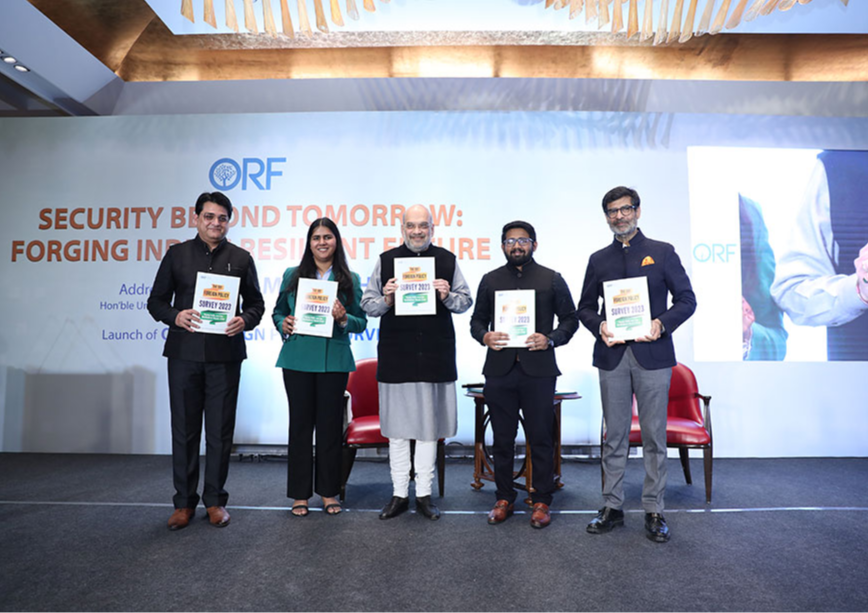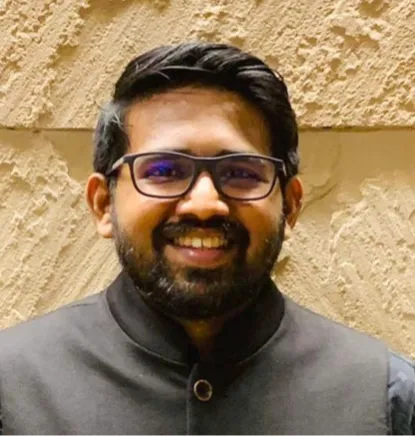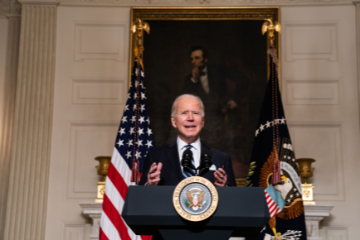India’s Prime Minister Narendra Modi and Sri Lanka’s President Ranil Wickremesinghe jointly inaugurated the Unified Payment Interface (UPI) services, contributing to more financial connectivity between both countries on February 12.
This latest development is a mere example of growing India-Sri Lanka relations over the last two years. Following the economic crisis, Sri Lanka is increasingly pushing for connectivity and encouraging Indian investments and businesses as its economic recovery and growth are being interwoven with India.
As India emerges as a crucial stakeholder in Sri Lanka’s recovery process, it is vital to understand how young India, which makes up 60% of the population, perceives its neighbor. India’s premier think tank – the Observer Research Foundation (ORF)’s annual Foreign Policy Survey reflects this public opinion of Indian youth.
The recently released survey, together with its previous two editions, shows that the majority of Indian youth are positive about Sri Lanka despite a gradual decrease in positive perceptions.
Trust, bilateral relations and Interactions
The first edition of the survey (2021) was conducted in 14 different cities and eight different languages amongst 2,037 Indians between the ages of 18-35 years. Respondents for this study were interviewed in December 2020. Throughout this iteration, young Indians were most optimistic about Sri Lanka.
As India emerges as a crucial stakeholder in Sri Lanka’s recovery process, it is vital to understand how young India, which makes up 60% of the population, perceives its neighbor.
This survey showed that Sri Lanka was the most trusted country in India’s neighborhood (by 68% of the respondents). When asked about the current status of bilateral relations – 62% of respondents said relations with Sri Lanka were good or very good. Forty-four per cent of respondents also believed India’s interactions with Sri Lanka increased in the last five years.
The second edition of the survey (2022), conducted between June – July 2022 in eleven languages and 19 cities, targeted 5,000 individuals in the 18-35 age group.
Throughout this edition, Sri Lanka was the second preferred neighbour. Sixty-five per cent of respondents expressed trust in Sri Lanka and 61% of respondents believed that India’s bilateral relations with Sri Lanka were good or very good. Fifty-two per cent of respondents said that interactions with Sri Lanka have increased in the last five years.
The third and latest survey (2023) followed the same methodology as the previous edition, with field research conducted between August-September 2023. In this edition, Sri Lanka was in 5th position (including all SAARC and BIMSTEC members) for trust and the nature of bilateral relations.
Young Indians trusted Sri Lanka by 61%. Fifty-six per cent opined the current state of reactions as good or very good and 55% of respondents said that the relationship has increased in the last five years. Interestingly, over 80 per cent of the respondents supported India’s assistance to Sri Lanka during the economic crisis.
This perception is not free of regional disparities. Starting from the first edition of the survey, Chennai has recorded negative perceptions of Sri Lanka due to Tamil Nadu’s domestic politics and complex history.
Young Indians trusted Sri Lanka by 61%. Fifty-six per cent opined the current state of reactions as good or very good and 55% of respondents said that the relationship has increased in the last five years.
In 2023, trust for Sri Lanka was 33% in Chennai; 34% perceived relations as good and 37% said relations increased in the last five years. Other regions like Guwahati in Assam, Ahmedabad in Gujarat and Ludhiana in Punjab also had little positive perceptions of Sri Lanka. On the contrary, respondents from Delhi (82%) and Raipur of Chhattisgarh (80%) had the highest trust in Sri Lanka.
Delhi (80 %) and Faridabad of Haryana (71 %) were most optimistic about the current nature of bilateral relations. Eighty-four percent of respondents from Delhi also believed that interactions have increased in the last five years.
Key Takeaways and Assessment:
The subsequent surveys indicate three crucial trends:
The majority of young Indians have an optimistic perception of Sri Lanka despite regional disparities. This optimism is likely because of historical and civilisational interactions, people-to-people relations and the lack of major bilateral irritants. India’s size, distinctive history, culture, political experiences and civilisational relations have also contributed to varied perceptions of the country.
As a result, the overall Indian perception is somewhat immune to the identity, ethnic and political tensions between Sri Lanka and Tamil Nadu. Second, young India’s trust and positive perception of bilateral relations have steadily decreased in the last three years. This decrease could be due to local dynamics and developments. Fewer arrests of Indian fishermen due to C-19 restrictions and India’s COVID diplomacy have likely contributed to the positive perception in 2021. Political and economic uncertainty in Sri Lanka in 2022 and 2023 and fears of refugee inflow might have reduced the positive perception of the country too.
The end of the civil war in Sri Lanka, lack of major bilateral irritants and overall positive perception have created a favorable environment for broader interactions.
It is also safe to argue that geopolitics and foreign policy developments have less impact on public opinion and young India’s perception of Sri Lanka goes beyond zero-sum thinking. Throughout the three surveys, respondents were concerned about Chinese intentions and activities in South Asia, but a large number of them have continued expressing trust in Sri Lanka. There has also been a gradual decrease in positive perceptions of Sri Lanka despite India’s increasing investments and relations. Chinese spy vessel dockings in Sri Lanka have not significantly impacted this perception either. Third, from the 2021 survey, respondents believe that interactions between India and Sri Lanka have gradually increased in the last five years (since 2016). This increase in responses indicates that local developments and dynamics that lead to the depletion of trust and positive perception are discounted by the youth when they look at broader India-Sri Lanka relations and interactions. The end of the civil war in Sri Lanka, lack of major bilateral irritants and overall positive perception have created a favorable environment for broader interactions.
The ORF’s Foreign Policy Survey demonstrates that a majority of Indian youth have a positive perception of Sri Lanka despite steadily decreasing trust and positive perception. For both India and Sri Lanka, there is a need to capture this momentum to shape their public opinion. This positive perception will help both countries make the best of their recently increasing partnership and relations.
This commentary origianlly appeared in Daily News.
The views expressed above belong to the author(s). ORF research and analyses now available on Telegram! Click here to access our curated content — blogs, longforms and interviews.




 PREV
PREV


